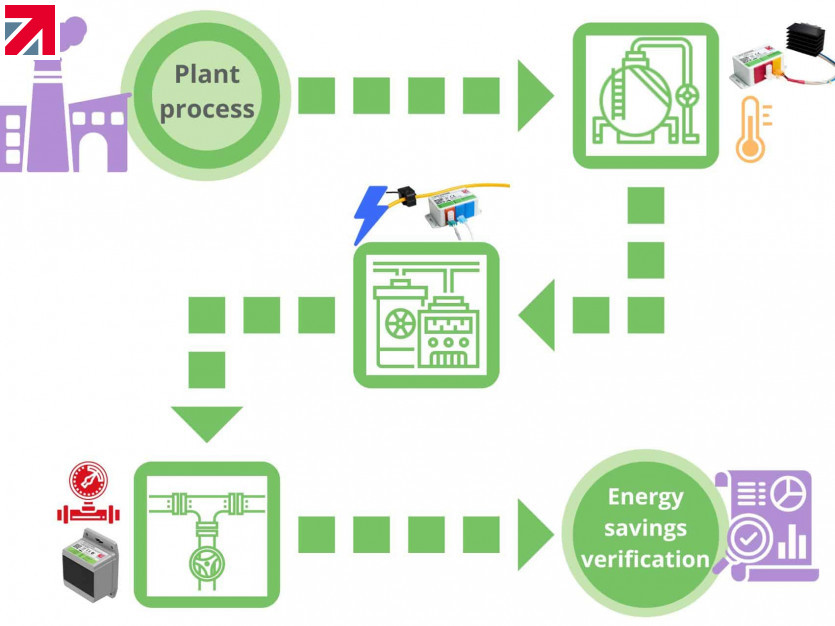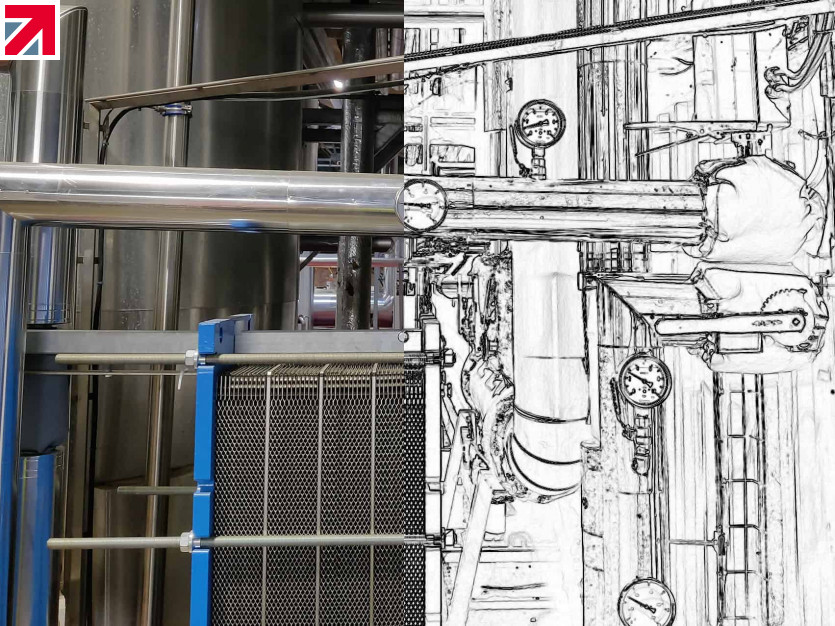In 2002, The Energy Review, published by the Global Commons Institute, encouraged the non-domestic sector to focus on energy efficiency and environmental objectives. As a result, the past 20 years have witnessed investments in new machinery, updates to processes and energy efficiency measures put into place. While these ticked boxes look favourable on the surface, the focus has now shifted to energy savings verification and proof of improvement. Today, it is increasingly crucial to validate the success of every effort and investment. For plant processes, DCO Systems are helping manufacturers find out what’s going on under the surface and reveal savings by applying a digital twin.
Building a digital twin for plant process
The specification sheet promises one thing, but what is the reality of equipment performance within your process? By complementing specifications and theory-based models, a digital twin is a highly effective tool for understanding equipment performance and energy savings verification. With real-time data, you can eliminate assumptions and reveal what is really happening. A digital twin takes account of physical conditions and reflects real-time key metrics. Monitoring multiple data points on individual equipment is key to setting up a digital twin for the plant process. In order to achieve this, DCO Systems offer energy harvesting sensors which allow engineers to put more sensors in more places. These battery-free, wireless sensors are ideal for places with limited infrastructure and provide a fit and forget, maintenance-free solution. This is crucial because more data points refine the level of accuracy as you’re adding real-time data and removing assumptions.
Identifying important elements within the process
Once sensors are in place, data points are collected in a single view and mapped to the digital twin. The data is analysed, and a model created. Because a plant process typically consists of many items of equipment with varying degrees of capabilities, engineers can focus on which elements are important. For example, a digital twin can uncover the high energy consumers in your process – where is most energy used and is it used least efficiently? In verifying energy usages, and savings, different parameters of the process can be identified, and metrics segmented. Also, identifying elements such as high loss potential, production critical, and quality critical can indicate which equipment most impacts on quality outcomes. As a result, the model can then be used operationally for energy savings verification, to enhance tests and trials or to help quantify business cases and investment proposals.
Benefits of equipment level digital twins
Digital twins provide both short-term and long-term benefits for plant process. In the short-term, digital twins can be used to verify plan assumptions, simplify commissioning and provide better data granularity. They also help establish what baseline and normal look like so that engineers can make changes to the plant process to improve performance and ‘go faster’ with incremental change. In the long-term, a digital twin can aid in the review of what happens to the equipment and machines over their process lifetime. Oftentimes performance worsens as machines age, processes change, or cumulative wear from other equipment comes into play.
Feasibility of more granular digital twins
The move to net-zero by 2050 means that energy savings verification should be part of every decision and investment now. Fortunately, utilising a digital twin for plant processes is not only feasible but very cost-effective. And as your plant grows, adding in more affordable data collection units will yield a faster return on investment. Furthermore, lower maintenance sensors (e.g., harvesting) reduce operational expenses and modern IT allows for data storage and analysis at scale. DCO Systems offer digital twin capabilities for equipment including steam traps, heat exchangers, actuators, motors & drive systems, air handlers, heat recovery units, valves and pipework. To get started with DCO’s digital twin capabilities, contact us or email info@dcosystems.co.uk.
Find out more about DCO Systems Limited on their member profile page here
Member-created content 2 years ago | From members

